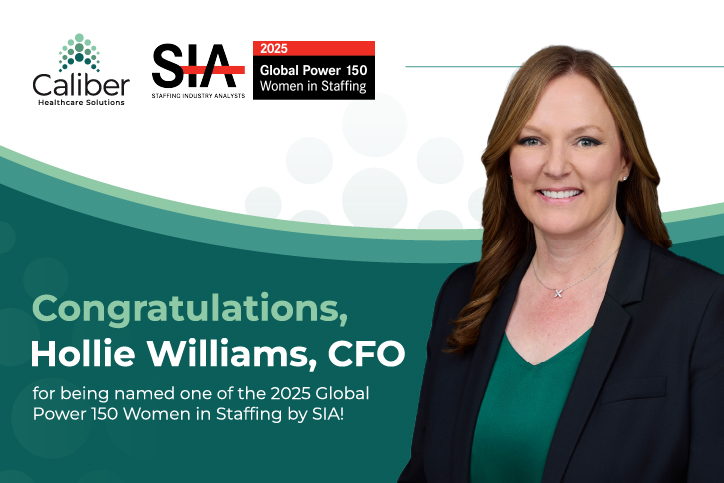
How much does a Gastroenterologist make? According to this year's "Gastroenterologist Compensation Report," the average self-reported annual salary is $515,000 (may include bonuses and profit sharing). Since several critical factors can influence this figure, let's dive in.
Understanding salary trends can help Gastroenterologists make the most of their careers. In 2024, there was a 2% increase in pay for Gastroenterologists in the U.S. compared to the previous year. Notably, nearly 70% of Gastroenterologists reported receiving compensation bonuses, highlighting the impact of additional incentives on overall earnings.
The gastroenterology salary range varies based on experience, location, and the type of practice. It's also important to note what type of salary is being calculated.
Self-reported average salaries tend to fall on the higher end of the physician salary scale since some survey participants may include cash bonuses and profit sharing. The $515,000 number above can be a bit misleading on its own!
That's why it's also important to look at average salary ranges. The average base salary for Gastroenterologists ranges from $357,011-$499,383. While a fresh graduate starting in the field can expect a number on the lower end of the range, a physician with experience and further specialization will see a significant increase in their base salary.
As medical technologies advance and the patient population ages, demand for specialists in gastrointestinal care is expected to grow. Over the last decade, Gastroenterologists have seen a 47% increase in their average salary, making gastroenterology the sixth highest-paid specialty.
Geographic location plays a pivotal role in determining a Gastroenterologist's salary. Factors such as the cost of living, local demand for healthcare services, and the density of healthcare facilities can significantly influence base salary across different regions. For example, Gastroenterologists practicing in metropolitan areas or regions with a high demand for sub-specialization tend to earn more than those in rural settings.
That said, as the healthcare landscape evolves, hospitals and health systems are changing their recruitment strategies to remain competitive. Areas with difficulty attracting physicians may have the means to offer higher compensation as an incentive, especially on a temporary basis to fill a critical gap. This makes it crucial to stay informed about market trends when job searching.
By understanding and staying informed about the key factors that affect compensation, Gastroenterologists can strategically navigate their careers for maximum financial gain.
Specialization in areas like hepatology or advanced endoscopic procedures can significantly impact compensation. Advanced endoscopy focuses on complex, high-demand procedures, such as ERCP and EUS, so Gastroenterologists typically earn more due to the advanced skills required.
Gastroenterologists tend to earn higher salaries in single-specialty practices compared and generally make less in physician-owned practices. Organizational structure greatly influences compensation. Those employed in large healthcare systems or academic medical centers often have different salary structures and benefits than those in private practice. Additionally, the inclusion of advanced practice providers in the gastroenterology team can enhance patient care and efficiency, impacting overall compensation models.
Location matters when it comes to salary. Regional demographics, economic conditions, and the local healthcare landscape all determine compensation levels. Gastroenterologists can strategically use this knowledge to their advantage and "play the field" by engaging in locum tenens work to explore different markets and salary potentials.
For instance, some Gastroenterologists choose to live in rural areas with a lower cost of living while taking part-time assignments in metropolitan regions where demand and salaries are higher. Conversely, others may reside in urban centers but provide short-term relief in rural areas, leveraging locum tenens roles to maximize income and gain diverse clinical experiences.
Understanding the complex interplay of specialization, healthcare structures, and geographic factors allows Gastroenterologists to make informed decisions that optimize their compensation and career satisfaction. And with the right staffing partner, you don't have to make these decisions alone.
At Caliber, our mission is to empower Gastroenterologists by providing professionally satisfying and financially rewarding practice opportunities. In today’s highly competitive healthcare landscape, maximizing your earning potential requires more than just clinical expertise; it demands strategic partnership and comprehensive support, which is precisely what we're here for.
Our provider-centric approach to healthcare staffing means that we provide tailored support to ensure we connect each locum Gastroenterologist with opportunities that leverage their skills, advance their careers, and optimize their earnings. Our support extends to negotiating competitive compensation packages that reflect not only your qualifications and experience but also your commitment to exceptional patient care.
All our medical providers work with specialty-focused recruiting teams who can speak their language. And our GI recruiters are experts in the gastroenterology job market. They have valuable insights into pay equity, unique geographic opportunities, and the impact of different healthcare management structures on earnings. We believe that exceptional patient care begins with well-supported providers. That's why we focus on setting each Gastroenterologist up for success from the beginning, seeking environments where their skills are most valued and their personal and professional needs are met.
Whether you're looking to serve in high-demand areas or explore opportunities in internal medicine and critical care, our goal is to keep you well-informed and optimally positioned for financial growth and professional advancement.
Choosing Caliber as your career partner opens diverse career paths and redefines healthcare staffing. As a provider-centric agency, we focus on building long-term partnerships that help Gastroenterologists reach their full potential.
At Caliber, your success is our success. We focus on precision, quality, and care, with the goal of helping you achieve a fulfilling gastroenterology career. Ready to connect with a recruiter and elevate your career?
.png)
Posted on
February 3, 2026
Caliber Healthcare Solutions, a leading healthcare staffing agency, announced today that it has achieved a rare and significant milestone by winning ClearlyRated’s 2026 Best of Staffing® Client, Talent, and Employee Awards for Service Excellence. This marks the first time in company history that Caliber has earned the Employee Satisfaction Award, completing a first-ever, three-award sweep that reflects excellence across every stakeholder group the firm serves.

Posted on
October 9, 2025
Caliber is proud to announce that our Chief Financial Officer, Hollie Williams, has been named to the Staffing Industry Analysts (SIA) 2025 Global Power 150 Women in Staffing list. This prestigious recognition honors women who are shaping the future of the staffing industry through innovation, leadership, and measurable impact.

Posted on
August 14, 2025
The OB/GYN workforce is at a pivotal moment. Demand is growing, especially in underserved regions. Meanwhile, retirements, burnout, and legislative pressure continue to shrink the supply of practicing physicians.
.png)
Posted on
February 3, 2026
Caliber Healthcare Solutions, a leading healthcare staffing agency, announced today that it has achieved a rare and significant milestone by winning ClearlyRated’s 2026 Best of Staffing® Client, Talent, and Employee Awards for Service Excellence. This marks the first time in company history that Caliber has earned the Employee Satisfaction Award, completing a first-ever, three-award sweep that reflects excellence across every stakeholder group the firm serves.
.png)
Posted on
January 18, 2026
During National CRNA Week 2026 (January 18–24), we recognize and celebrate CRNAs for their critical role in modern healthcare and their lasting impact on patient outcomes nationwide.

Posted on
October 9, 2025
Caliber is proud to announce that our Chief Financial Officer, Hollie Williams, has been named to the Staffing Industry Analysts (SIA) 2025 Global Power 150 Women in Staffing list. This prestigious recognition honors women who are shaping the future of the staffing industry through innovation, leadership, and measurable impact.

Posted on
July 31, 2024
By 2030, 20% of Americans will be 65 or older, significantly increasing the demand for healthcare services, particularly in gastroenterology. Older adults generally require more GI healthcare, including essential procedures like colon cancer screening.

Posted on
July 30, 2024
With a projected 3% job growth in gastroenterology by 2032 and over half of currently practicing Gastroenterologists aged 55 or older, the field is on the brink of significant changes.

Posted on
July 29, 2024
Gastroenterology presents both challenges and opportunities for healthcare providers. The specialty is experiencing significant advancements in technology, increased patient demand, and evolving healthcare delivery models.
.png)
Posted on
February 3, 2026
Caliber Healthcare Solutions, a leading healthcare staffing agency, announced today that it has achieved a rare and significant milestone by winning ClearlyRated’s 2026 Best of Staffing® Client, Talent, and Employee Awards for Service Excellence. This marks the first time in company history that Caliber has earned the Employee Satisfaction Award, completing a first-ever, three-award sweep that reflects excellence across every stakeholder group the firm serves.
.png)
Posted on
January 18, 2026
During National CRNA Week 2026 (January 18–24), we recognize and celebrate CRNAs for their critical role in modern healthcare and their lasting impact on patient outcomes nationwide.

Posted on
August 14, 2025
The OB/GYN workforce is at a pivotal moment. Demand is growing, especially in underserved regions. Meanwhile, retirements, burnout, and legislative pressure continue to shrink the supply of practicing physicians.